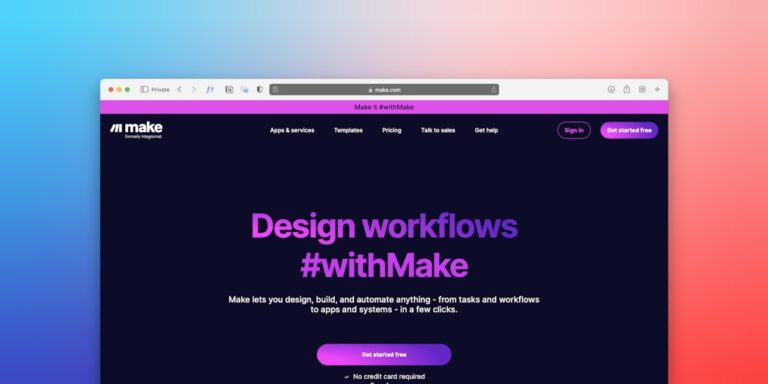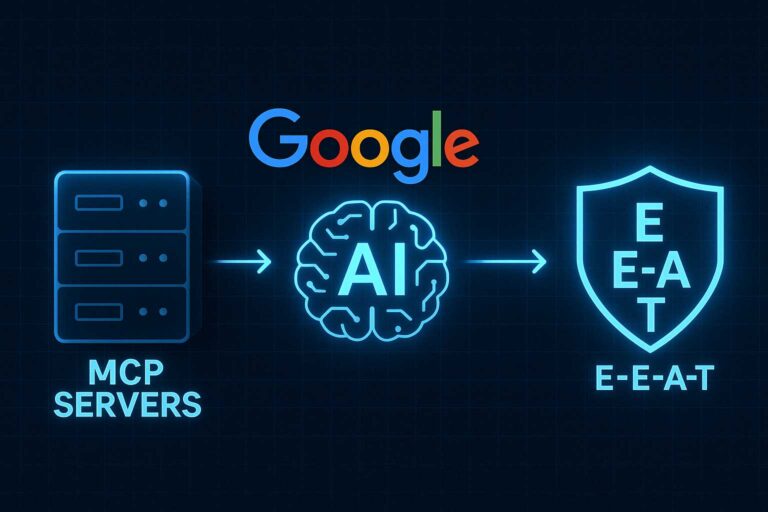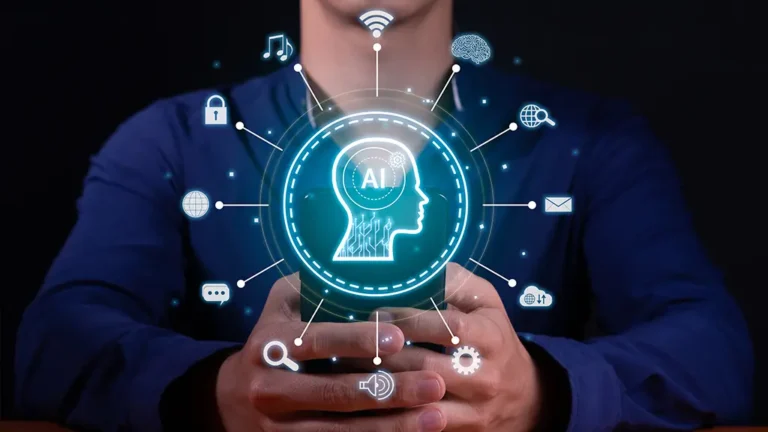AI Website Design: How Artificial Intelligence is Transforming the Future of Web Design
Introduction: The Rise of AI in Website Design
Artificial intelligence (AI) is transforming industries across the board, and website design is no exception. AI technology is reshaping how websites are created, making design faster, more efficient, and accessible even to those with limited technical expertise. With AI-powered tools, users can build functional, aesthetically pleasing websites with minimal input, as the technology handles everything from layout and color selection to content suggestions and SEO.
Incorporating AI into website design has opened new possibilities, especially for small businesses and individuals who need a professional online presence but may lack the resources for traditional web development. AI-driven platforms like Wix ADI and Bookmark are leveraging machine learning algorithms to simplify the process, offering designs tailored to individual preferences and industry standards. For business owners, marketers, and entrepreneurs, AI website design represents a powerful tool to create high-quality websites faster than ever. This post explores the ins and outs of AI website design, the benefits it offers, and the considerations for businesses looking to incorporate AI-driven design into their digital strategy.
What is AI Website Design?
AI website design involves using artificial intelligence and machine learning technologies to automate and optimize various aspects of web design. Unlike traditional methods that rely heavily on human input for layout, color schemes, and content, AI-driven design tools use algorithms to generate design elements based on user preferences, behavior, and industry trends. AI website design tools analyze data from millions of existing websites to make informed decisions about what works best in specific industries, adjusting layouts, colors, and even content to fit the intended audience.
For example, AI tools often start by asking a few simple questions about the business, such as its industry, style preferences, and desired features. Based on this input, the AI algorithm generates a personalized design, complete with recommended layouts, images, and content suggestions. Advanced AI-driven platforms even learn from user behavior over time, adapting designs to enhance user experience and optimize conversion rates.
AI website design simplifies and speeds up the design process by automating repetitive tasks and making data-driven choices. It’s an approach that empowers users, especially those with limited design expertise, to create professional-looking websites that align with current trends and audience expectations.
Benefits of AI in Website Design
AI brings numerous benefits to website design, from speeding up the process to offering personalization and data-driven insights. Here are some key advantages of using AI in website design:
- Faster Design and Development Process: AI-driven platforms can drastically reduce the time it takes to design a website. What might take weeks or even months with traditional methods can be accomplished in hours or days. By automating tasks such as layout arrangement, image selection, and content placement, AI tools allow businesses to get their websites up and running quickly.
- Improved Personalization: AI website design tools can personalize websites based on user behavior and preferences. By analyzing data from visitors, AI can make real-time adjustments to the layout, recommend personalized content, or customize calls-to-action (CTAs) to match the visitor’s interests. This level of personalization enhances user experience, making visitors more likely to engage with the site and return.
- Data-Driven Design Choices: AI tools analyze vast amounts of data from websites across industries, making it easier to implement design elements that are proven to work. Rather than relying solely on subjective design preferences, AI incorporates data on successful layouts, colors, and features, allowing for informed design decisions that are more likely to yield positive results.
- Automated Updates and Optimization: As user behavior and industry trends change, AI can automatically update and optimize website elements to keep them current. For example, AI can suggest changes to improve SEO, enhance page speed, or adjust content placement based on how visitors interact with the site. This ensures the website remains relevant and performs well over time without requiring constant manual adjustments.
By leveraging these benefits, businesses can create user-friendly, optimized websites that align with their brand and engage their audience effectively. AI’s ability to streamline the design process and provide actionable insights makes it a valuable tool for businesses seeking to establish or improve their online presence.
Key AI Tools and Platforms for Website Design
AI-driven website design tools have become increasingly popular, making it easier than ever to build and launch professional websites. Here are some notable AI platforms transforming the design process:
- Wix ADI (Artificial Design Intelligence): Wix ADI simplifies web design by asking users a few questions about their business and preferences, then generating a complete website based on those inputs. The platform offers flexibility to customize the design further while handling much of the layout, color scheme, and content structure through AI. For small businesses and individuals, Wix ADI provides a quick, easy way to build a polished website without technical expertise.
- Bookmark’s AIDA: Bookmark uses an AI assistant called AIDA (Artificial Intelligence Design Assistant) to create websites in minutes. By selecting their industry and answering questions about style preferences, users can generate a fully functional website with custom features tailored to their business. AIDA also provides a range of design options, so users can experiment with different styles and layouts before finalizing the site.
- Squarespace and Zyro AI Tools: Squarespace integrates AI for content suggestions and layout options, while Zyro uses AI for features like logo generation, content writing, and layout creation. These platforms enable users to make data-driven design choices and ensure the content and structure align with industry standards.
These AI tools make website design more accessible, affordable, and streamlined, empowering businesses and individuals to create custom websites tailored to their specific needs.
Personalizing User Experiences with AI
AI-powered website design enables a level of personalization that’s challenging to achieve with traditional design alone. Through data analysis, AI can adjust website elements based on user behavior, preferences, and interactions, enhancing the visitor experience and increasing the likelihood of conversions. Here’s how AI personalizes user experiences:
- Dynamic Content Display: AI tools can analyze user behavior to deliver personalized content recommendations. For example, returning visitors may see different homepage content based on their previous interactions with the site. This adaptability allows businesses to tailor the user experience to each visitor, showcasing relevant products or content that resonate with their interests.
- Targeted Calls-to-Action (CTAs): AI can create customized CTAs based on user behavior. For instance, new visitors may see a CTA prompting them to explore the website, while returning users might receive prompts to sign up for a newsletter or make a purchase. By adapting CTAs to user activity, AI improves the chances of guiding visitors toward meaningful interactions.
- Predictive Product or Content Recommendations: For e-commerce sites, AI can analyze a visitor’s browsing history and purchase behavior to recommend products they’re more likely to purchase. Similarly, AI can suggest articles or resources based on what visitors have previously engaged with, improving user satisfaction and encouraging further exploration.
Through personalized experiences, AI can significantly improve user engagement, satisfaction, and conversion rates. By delivering relevant content and offers, AI ensures that each visitor’s journey feels unique and tailored to their needs.
How AI Improves Website SEO and Performance
AI is also making an impact on search engine optimization (SEO) and website performance, both of which are crucial for attracting organic traffic and retaining visitors. Here’s how AI contributes to these areas:
- Automated SEO Recommendations: AI-driven tools can analyze content and suggest improvements to optimize for relevant keywords, meta descriptions, and tags. This simplifies SEO for users who may not be familiar with best practices, ensuring their website is well-optimized for search engines from the start. Some AI tools can even monitor search engine trends and make adjustments automatically to improve rankings over time.
- Enhanced Site Speed Optimization: Slow-loading websites can deter visitors and hurt search engine rankings. AI can automatically optimize page load speeds by compressing images, minifying code, and enabling caching. These optimizations not only improve user experience but also contribute to better SEO performance, as Google prioritizes fast-loading sites.
- User Behavior Analysis: AI can track user behavior, such as which pages visitors spend the most time on, where they drop off, and which elements they interact with the most. This data helps website owners understand what is working and where improvements are needed. By analyzing this data, AI can suggest design tweaks or content changes to improve user engagement and conversion rates.
- Content Optimization and Readability: AI can also evaluate the readability of content, ensuring it’s accessible to a broader audience. AI tools like Grammarly or Hemingway Editor can provide readability scores and suggest edits to make the content easier to understand. Optimized content that is easy to read is more likely to engage visitors and perform well in search results.
By incorporating AI-driven SEO and performance optimizations, businesses can improve both their website’s visibility and user experience. AI’s ability to make real-time adjustments and offer data-backed recommendations ensures that websites stay relevant, user-friendly, and effective at attracting organic traffic.
AI-Powered Chatbots and Customer Support Integration
One of the most significant contributions of AI in website design is the integration of chatbots for real-time customer support. AI-powered chatbots provide instant responses to user inquiries, enhancing the overall experience and helping visitors find what they need quickly. Here’s how chatbots are transforming customer interactions:
- 24/7 Customer Support: Unlike traditional customer support, chatbots can operate around the clock, providing assistance even outside of regular business hours. This ensures that users can get answers at any time, improving satisfaction and retention.
- Guided Navigation and Personalized Assistance: Chatbots can guide users through the site based on their questions, offering product recommendations, answering common questions, or directing them to specific pages. This personalized assistance can enhance user engagement and simplify the browsing experience.
- Lead Generation and Conversions: Chatbots can also act as lead generators, capturing contact details from visitors who express interest in a product or service. They can prompt users to subscribe to a newsletter, schedule a consultation, or fill out a form, helping to increase conversions.
By integrating AI-powered chatbots, businesses can provide a more responsive, accessible website experience that meets user needs, increases engagement, and drives conversions.
Challenges and Limitations of AI in Website Design
While AI offers numerous advantages in website design, there are limitations and challenges to consider:
- Limited Creativity and Uniqueness: AI tools often rely on templates and preset algorithms, which can result in designs that lack a truly unique or creative touch. For brands seeking a distinctive aesthetic, AI’s output may feel too generic or formulaic.
- Reliance on Data Availability: AI’s ability to create personalized experiences depends on access to user data. Smaller businesses with limited site traffic may not generate enough data to fully benefit from AI-driven personalization, limiting the tool’s effectiveness.
- Difficulty Handling Complex, Niche Needs: AI tools work well for general website structures and basic functionality but may struggle with complex or highly specialized requirements. Websites with unique features, custom integrations, or specialized user interactions often require a human touch to meet these needs.
- Privacy Concerns and Data Security: AI tools that collect and analyze user data raise privacy concerns, especially in regions with strict data protection laws like GDPR in Europe. Businesses need to be cautious about data collection practices, ensuring user consent and compliance with regulations.
Understanding these limitations helps businesses make informed decisions about when and how to use AI. In cases where unique customization or creative vision is required, blending AI with traditional design can achieve the best results.
AI vs. Traditional Web Design: Finding the Right Balance
As AI continues to advance, the question arises: should businesses rely solely on AI-driven website design, or is traditional web design still relevant? Here’s a comparison of both approaches and when each is best suited:
- AI Design for Efficiency and Speed: AI website design tools excel in situations where speed and cost-efficiency are priorities. For small businesses, startups, or individuals needing a functional website quickly, AI can handle essential design tasks, provide basic customization, and reduce the time and costs associated with traditional design.
- Traditional Design for Creativity and Customization: When brand uniqueness, complex functionality, or industry-specific requirements are essential, traditional design by experienced professionals remains invaluable. Human designers can capture the nuances of a brand’s voice, style, and story, creating a website that feels custom-tailored to the client’s needs.
- Combining AI with Traditional Design: For many businesses, the ideal approach may involve blending AI tools with traditional design. AI can handle repetitive tasks like layout suggestions and SEO optimization, while human designers focus on strategic decisions, custom visuals, and storytelling. This combination can result in a balanced, efficient, and personalized website that leverages the strengths of both approaches.
Ultimately, the choice between AI and traditional design depends on the project’s scope, budget, and desired level of customization. Businesses looking for both efficiency and a high-quality end product may find that a hybrid approach yields the best results.
Conclusion: The Future of AI in Website Design
AI is reshaping the landscape of website design, providing businesses with powerful tools to create functional, attractive, and data-driven websites. With features like automated design suggestions, real-time personalization, and advanced customer support through chatbots, AI-driven website design allows even small businesses to establish a strong online presence with ease.
As AI technology continues to evolve, its role in web design will likely expand, integrating more sophisticated features that improve user experience, enhance SEO, and enable deeper personalization. While AI offers incredible advantages in efficiency and accessibility, it’s essential to recognize the value of human creativity and strategic vision in achieving a truly unique, branded website. For businesses with specific design needs or complex functionality, blending AI tools with professional design expertise can provide the ideal balance.For those looking to harness the power of AI while achieving a polished, professional site, Zen Agency’s website design services offer a range of options. We can help you navigate the integration of AI-driven tools and custom design elements to create a site that reflects your brand and meets your business goals. Ready to explore the future of website design? Contact Zen Agency today to start building a website that captures the best of both worlds.

















